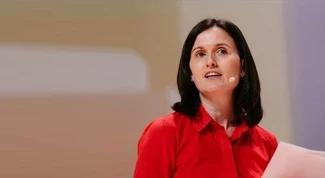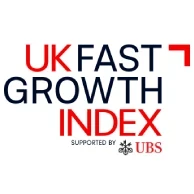Dan Cobley is a pioneer of technology, futurism and FinTech. As the former Managing Director for Google UK, he worked closely with the global company to generate billions of dollars in revenue. To do so, he harnessed the power of technology and data, key topics of his corporate speeches.
We recently sat down with Dan to hear his predictions for the future of FinTech, why innovation is important in the workplace and what businesses can do to implement advanced technology.
Find out more, in our latest interview:
Q: What would you say to businesses that do not embrace digital opportunities?
“I‘d say bye-bye! Nice knowing you!
“Seriously though, I think any business that believes digital is not for them, is a bit like a business a hundred years ago saying electricity is not for them. It’s just an impossible way to be a competitive, long-term business in today’s world.
“I‘d say that you absolutely have to get with the programme. You have to digitise the way you communicate with your customers, the way you manage your internal processes and the way you run every aspect of your organisation.
“Companies that don’t do that won’t be around to answer that question in 10 years.”
Q: What are some small changes businesses can make today to harness the benefits that technology offers?
“In terms of small changes businesses can make today, I think it’s about looking at the way your customers live their lives.
"It's about the things they do to make every aspect of their daily existence more efficient and convenient, to make sure your products and services are working in that way.
“It should be no more difficult or frustrating to engage with you as a company than it is for them to do their shopping, talk to their friends or organise their daily routines, and if there’s a gap then you need to close that gap.”
Q: What changes can we expect to see regarding how technology affects our everyday lives?
“Thinking about new technologies, they tend to come to market in a significant way when three things are true. When it is feasible, when the economics of rolling it out is viable and when the market is ready.
“Usually, it’s that third aspect that slows down the adoption of new technologies. But what we’ve seen over the last 12 months is the market getting rapidly ready for new advancements.
“The enforced working from home and our need to be distant from other people has meant that a whole decade of digital adoption has happened in a matter of months.
“That means there is going to be a reluctance to move away from the new digital ways of working we’ve seen in the last year, and I think that’s the world we’re going to be in for the foreseeable future.”
Q: What are your Fintech projections for 2021?
“2021 will see huge growth in the importance of financial wellbeing. The pandemic has left a lot of people feeling more vulnerable in their financial lives, and their general health and wellbeing.
“And so, the recognition that financial wellbeing is a critical part of looking after the whole person, whether that’s as an employee through workplace mental wellbeing schemes or as a customer of a financial institution, I think that is going to be increasingly important.
“And then more broadly, I think there’ll be increased use of machine learning and data science to enhance the data that the financial organisations have at their fingertips by increased adoption of things like open banking.
“This will enable businesses to make decisions more quickly and move forward on smarter paths more often.
“Something else I expect to see in 2021 in the FinTech space is a consolidation of some of the new challenger and digital-only banks.
“In many cases, the best of those are in the hands of new start-ups that don’t have the challenges of incumbent legacy technology stacks. But they struggle to get scale and to get their economics working.
“So, a combination of the scale and the economics of the established businesses with some of those new skills from the new starters, I think consolidating in that way will make some much stronger organisations for the future.”
Q: If you could give yourself one piece of advice at the start of your career, what would it be?
“If I were to give my younger self advice about the career ahead, it would be: whenever you have a choice, move towards companies or industries or technologies that are going to be more important in the future than they are today.”
Q: What qualities do you possess that you believe led to your entrepreneurial success?
“I think it’s about being optimistic. Most entrepreneurial ventures look impossible from the outside world, so you must have a slightly insane degree of optimism about what you might achieve in the future.
“It’s also about being decisive, as so much of success is about moving quickly and so being decisive in your thinking processes is helpful.
“You also need to be relentless. Sometimes you just have to keep chipping away at the same old problem, never giving up until you find a way through.”
Q: What about Google attracted you to the company?
“I was attracted to Google by their sense of ambition. The organisation had a willingness to try new things, possibly failing on the way but there was always a clear sense that the organisation was having fun trying.
“There was a real sense of energy and optimism. A clear part of the brand guidelines was that you can be serious without a suit and you can have fun while being at work.
"I think that created an atmosphere and an environment in which people could bring their best selves to work, to innovate and to help the organisation move forward.”
Q: What advice would you give to companies wanting to build a culture of innovation?
“I would say you need to get the right team in place, which means hiring creative problem solvers, people who are enthusiastic about attacking a problem because they see it as a fun thing to do.
“The people with that mindset are going to help you solve the problems of your business and your customers, and that will take you forward.
“I think you need to define the goal, not the path for that team. People with that kind of mindset enjoy figuring out how to solve the problem, so just make very clear what the goal is, and they’ll find a way to get there.
“You need to give them some freedom, so perhaps 20 per cent time or free Friday afternoons where they can get away from the day-to-day task list and think more expansively about some of the problems that they want to solve.
“You need to be forgiving of smart failure. So, people who take sensible, calculated risks on things that might be game-changing for your organisation, you need to recognise that by definition, some of those risks are going to fail.
“Lastly, you need to give them the tools to allow them to do these things efficiently. So, invest in digital platforms for data analysis, A/B testing and things like that. This will give your employees an accelerated ability to learn, innovate and bring new things to market.”
Book Dan Cobley
Contact the Champions Speakers agency to provisionally enquire about Dan Cobley for your event today. Simply call a booking agent on 0207 1010 553 or email us at [email protected] for more information.









